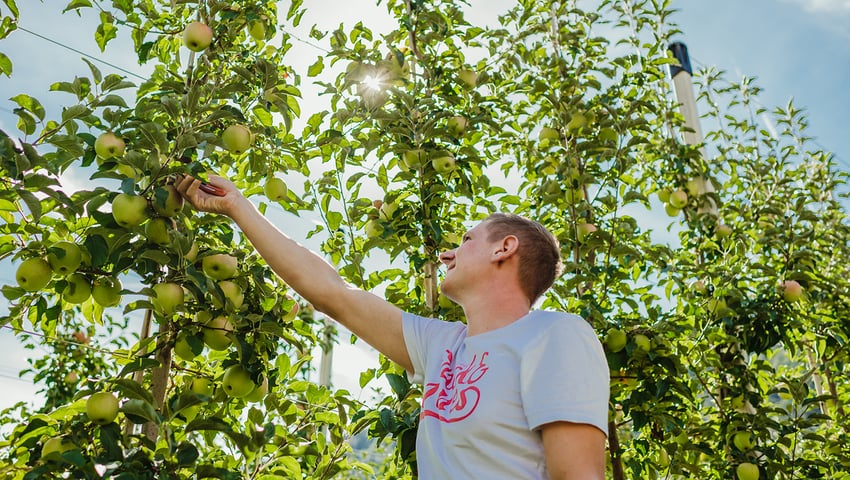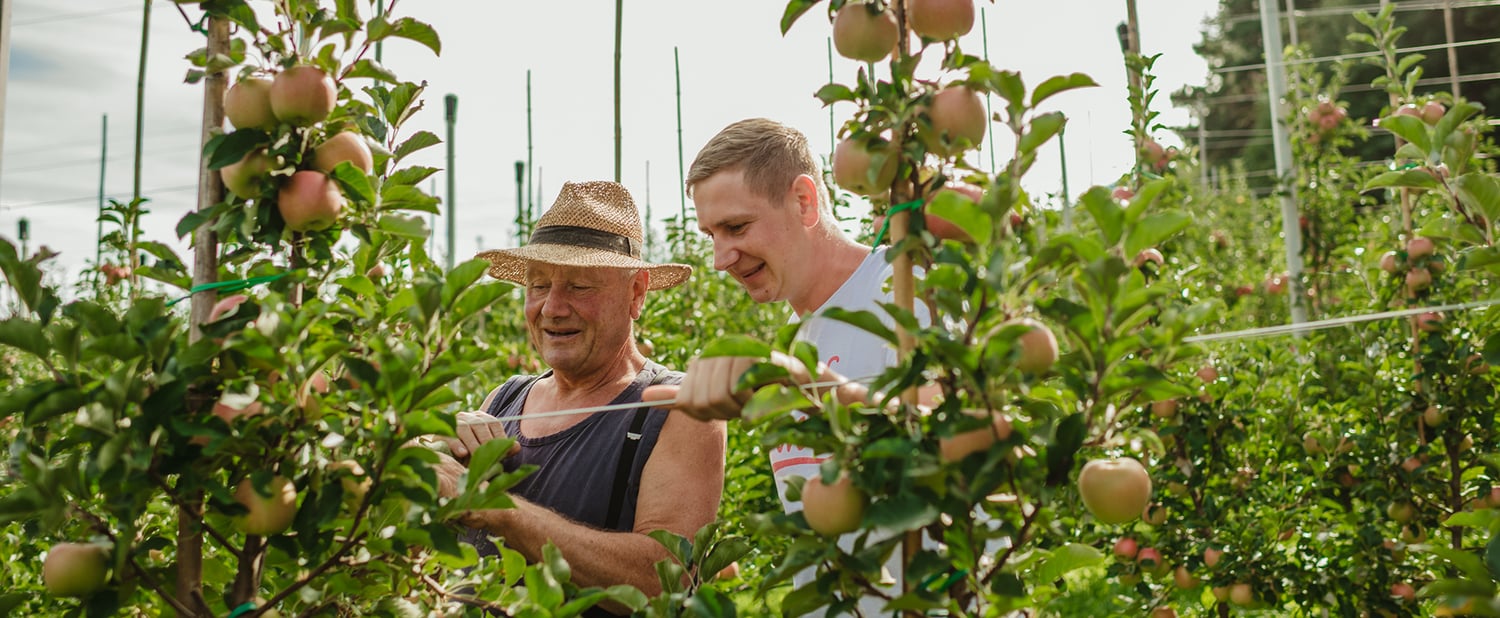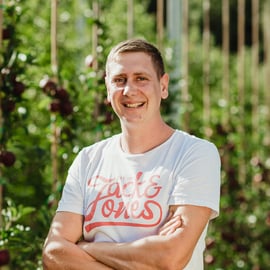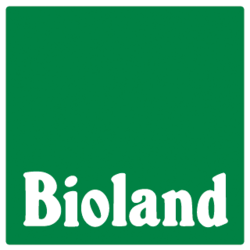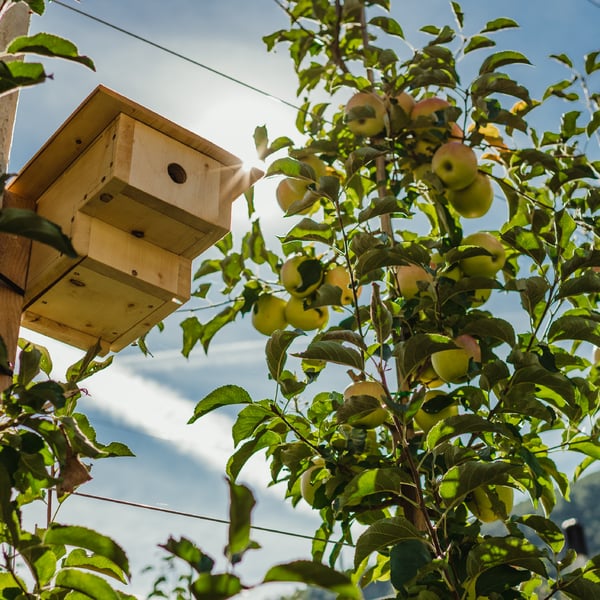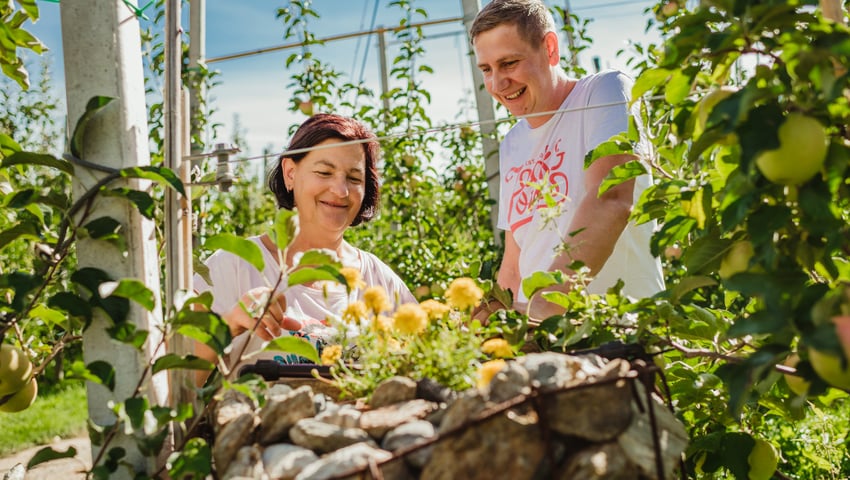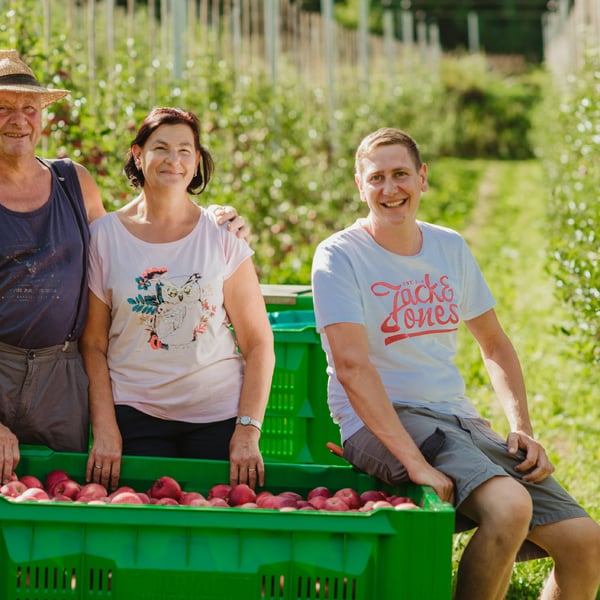My story
Andreas, where is your farm located and when did you decide to go organic?
Our farm, Niedermair-Hof, is located on the Tablá hill – a fertile alluvial cone at the foot of the Nörderberg mountain.
I used to manage the apple orchards together with my father, and in 2020, I took over the farm.
A few years before that, we decided together to convert to organic. We discussed the pros and cons in detail – and then took the leap.
What challenges you in organic farming – and what do you enjoy about it?
Organic farming requires a lot of manual work and close care – but that suits me: I prefer working with my hands over using tractors and machines.
As organic farmers, we need to understand the complex natural relationships before we can act.
It takes experimentation and observation, since there's no one-size-fits-all solution in organic farming.
For example, we need to detect pests very early to intervene gently. The windows for action are much shorter.
What I enjoy most is the apple harvest in autumn: seeing what I’ve grown with my own hands brings real joy.
You’ve installed several nesting boxes in your orchard – is there a reason for that?
I built them myself and attached them to the apple trees to give wild bees and bumblebees a place to retreat.
I rely a lot on them for pollination: wild bees are active earlier in the season and even in poor weather, while honeybees only fly at around 10°C.
It’s also important to me to let the meadow plants bloom fully before mowing.
What does organic mean to you?
For me, organic also means choosing more diversity.
I believe we farmers should return to greater biodiversity – just like 30 or 40 years ago.
In addition to a main crop like apples, we should grow more vegetables, pears, or potatoes again.
This kind of diversity is good for nature and the soil.
Organic farming looks to the future – it’s a way to ensure sustainable agriculture for the generations to come.
